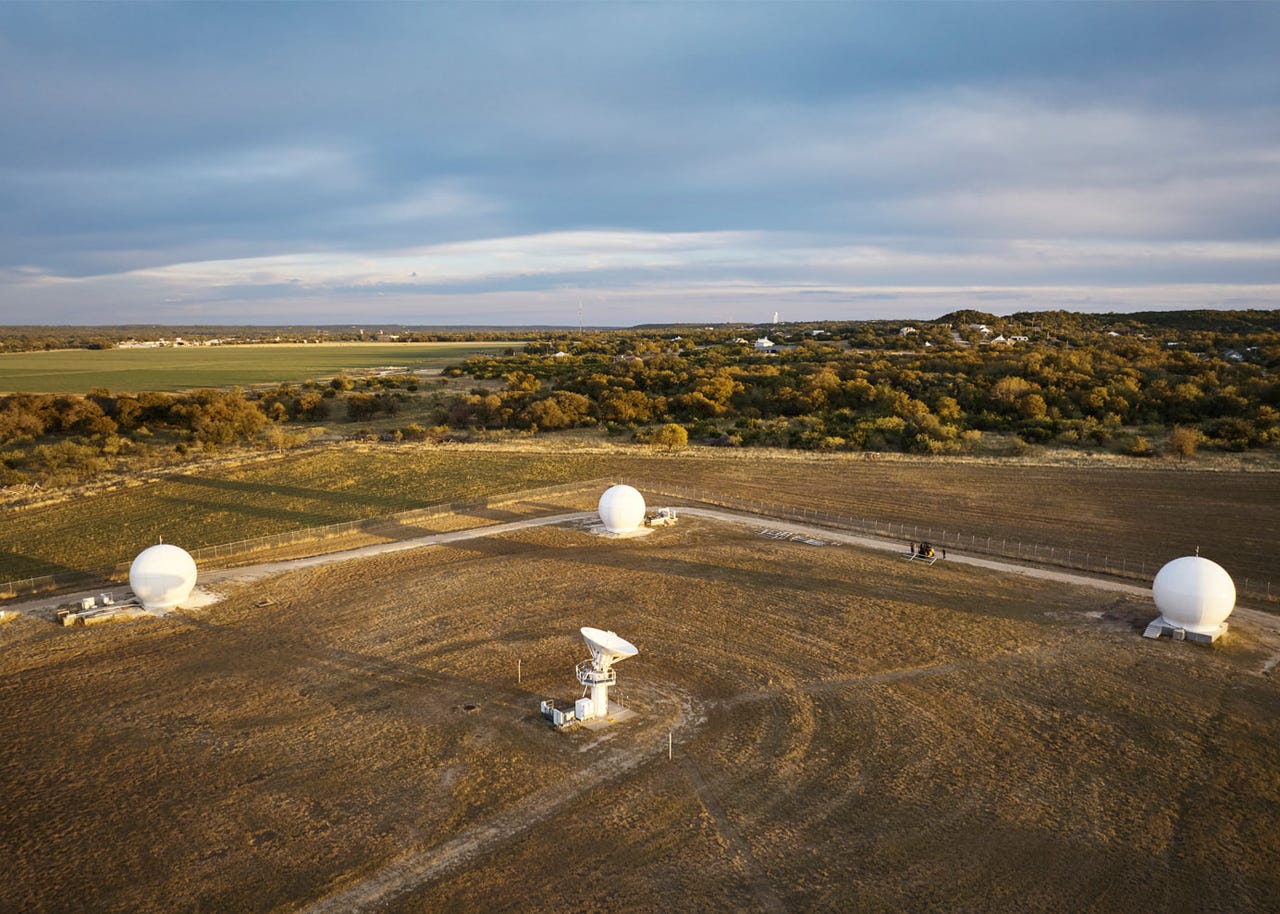
































Globalstar's advanced satellite network's ground station.
AppleApple is one step closer to bringing satellite-based emergency services to your iPhone. The tech giant has invested$450 million in US infrastructure to support the new Emergency SOS service, it announced Thursday. First unveiled in September, the new service will be launching later this month to US and Canadian customers and will be available on the iPhone 14 and iPhone 14 Pro.
The Emergency SOS via satellite service will enable the iPhone 14 lineup to connect with emergency services, even when outside of cellular and Wi-Fi coverage, by connecting directly to a satellite.
Also:Here's everything Apple announced during its 'Far Out' event
Most of the new funding is going to Globalstar, a global satellite service headquartered in Covington, Louisiana that has facilities across the US.
When an iPhone 14 user makes an Emergency SOS via satellite request, the message will be received by one of Globalstar's 24 satellites in low-earth orbit. That message will then be sent down to ground stations located around the globe, according to Apple.
The ground stations will receive the signals with high-powered antennas specifically designed by Cobham Satcom in Concord, California for Apple. These antennas were installed in all Globalstar worldwide ground stations to ensure reliable coverage.
Once the message is received at a ground station, the message will be forwarded to emergency services or to a relay center with Apple-trained emergency specialists to send help.
"Emergency SOS via satellite is a perfect example of how American ingenuity and technology can save lives," said Jeff Williams, Apple's chief operating officer. "We are proud this service is enabled by leading US companies, and that our users can explore off-the-grid areas knowing they are still within reach of emergency services if they are in need."
In addition to messaging emergency services, iPhone 14 users will be able to share their current location via satellite by launching their "Find my" app, even when they are entirely off the grid.
 Tags chauds:
affaires
Les entreprises
Tags chauds:
affaires
Les entreprises